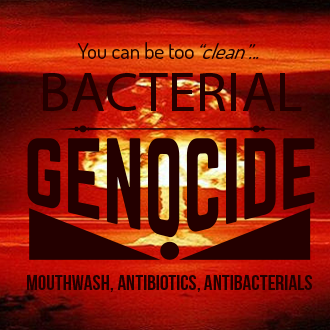


Most people hear the word bacteria and think germs. We have been taught to reflexively associate the words germs or bacteria as referencing bad things. That needs to change. Truth is, of the 100 trillion bacteria living in and on our bodies, most of those bacteria are not harmful to us – and in fact, in many instances, they actually help us to survive.
Bacteria Can Be Good: In a normal healthy person, it is now thought that the ratio of good bacteria to bad bacteria cohabitating with us should be approximately 85% – 15%. That means that 85% of the bacteria in a healthy person are thought to be either good or neutral, while 15% are potentially harmful. The good ones help us digest food, obtain nutrients, and support our immune system’s health. The bad ones create the disease that we, of course, want to avoid. The latest science also tells us that many species of what we consider to be good bacteria actually attack the bad bacteria within our bodies and help to keep them in check. That means the strategy of killing all bacteria indiscriminately is not a very smart one, if your goal is to be as healthy as you can be. It’s not good for your mouth or your body.
Your Mouth is a Lawn: Here’s a good way to think about this topic from now on. Your mouth is like a lawn. If your lawn has a few weeds sprouting up, you make some decisions at that point to assure that the weeds don’t continue to multiply and spread throughout ever larger areas of the grass. Your lawn starts out as mostly good grass but weeds, if ignored, can quickly change the overall health and appearance of your lawn.
Bad Bacteria Spread Like Weeds. Same with your mouth. If you ignore the bad bacteria in your mouth, they can, quite quickly, multiply and spread to the point where they are causing disease, damaging healthy tissue, and changing both the function and appearance of your mouth (in the form of decay, bleeding, bad breath, and eventual tooth loss, along with a linkage to systemic illnesses like diabetes, heart disease etc.)
No Flamethrowers Please: Continuing with our lawn care metaphor – while no one ever wants weeds to spread, targeted weed removal is a much more sensible strategy than wholesale, indiscriminate destruction as a tactic. In other words, you don’t use a flamethrower to remove weeds in your lawn, because a flamethrower would destroy the weeds and all your grass at the same time. Unfortunately, we don’t seem to be as logical about dealing with the harmful bacteria in our bodies as we are about our lawns.
Bacterial Genocide: Most people have heard about the rise of disease resistant bacteria – super bugs that have evolved in response to the overuse of antibiotics in treating illness. Broad spectrum antibiotics, substances designed to kill any and all bacteria they encounter, good or bad, change the balance of the complex bacterial ecosystem in our bodies. It’s like bacterial genocide, and often times contributes to helping create an environment in which more serious systemic health problems can develop, long-term.
Consequences for Your Mouth: In your mouth, mouthwashes touting their antibacterial properties (Listerine for example), and toothpastes that contain antibacterial ingredients, can work just like that lawn flamethrower we talked about. And once your entire mix of oral bacteria are all suppressed indiscriminately, you’ve opened yourself up to a potential scenario that makes you less healthy than you were before.
You see, most of the bad bacteria in your mouth reproduce ten times faster than the good ones do – so by using antibacterials, what you are actually doing is giving the bad guys a head start with every use.
A Better Game Plan: The better solution therefore, to maintain a healthy mouth, is to first not allow bad bacteria to remain in your mouth unaddressed. Removing bad bacteria from the surfaces of your teeth, tongue, cheeks etc., as soon as possible, helps to assure that bacterial plaque colonies don’t develop and spread like weeds. The next step to take, after removing those bacterial weeds, is to replace them with fresh, bacterial grass seed – which in our case means specifically effective, oral probiotics. NOTE: These are different species of bacteria from the probiotic bacteria in yogurts that people take for their gut health.

Remove and Replace: So, rather than genocide, the best strategy is one of removal and replacement. Remove the bad bacteria via mechanical cleaning techniques, (brushing, oral irrigating, etc), followed by the introduction of specific oral probiotic bacteria to replace the bad bacteria and work to deny them an unfettered return. It’s effectively like re-seeding your lawn so weeds don’t fill the blank spots. It’s a turf war (pun intended), whose strategy is to crowd out the bad guys and hold that territory with the good guys. That’s a battlefield tactic that relies on smart power instead of wholesale destruction.
